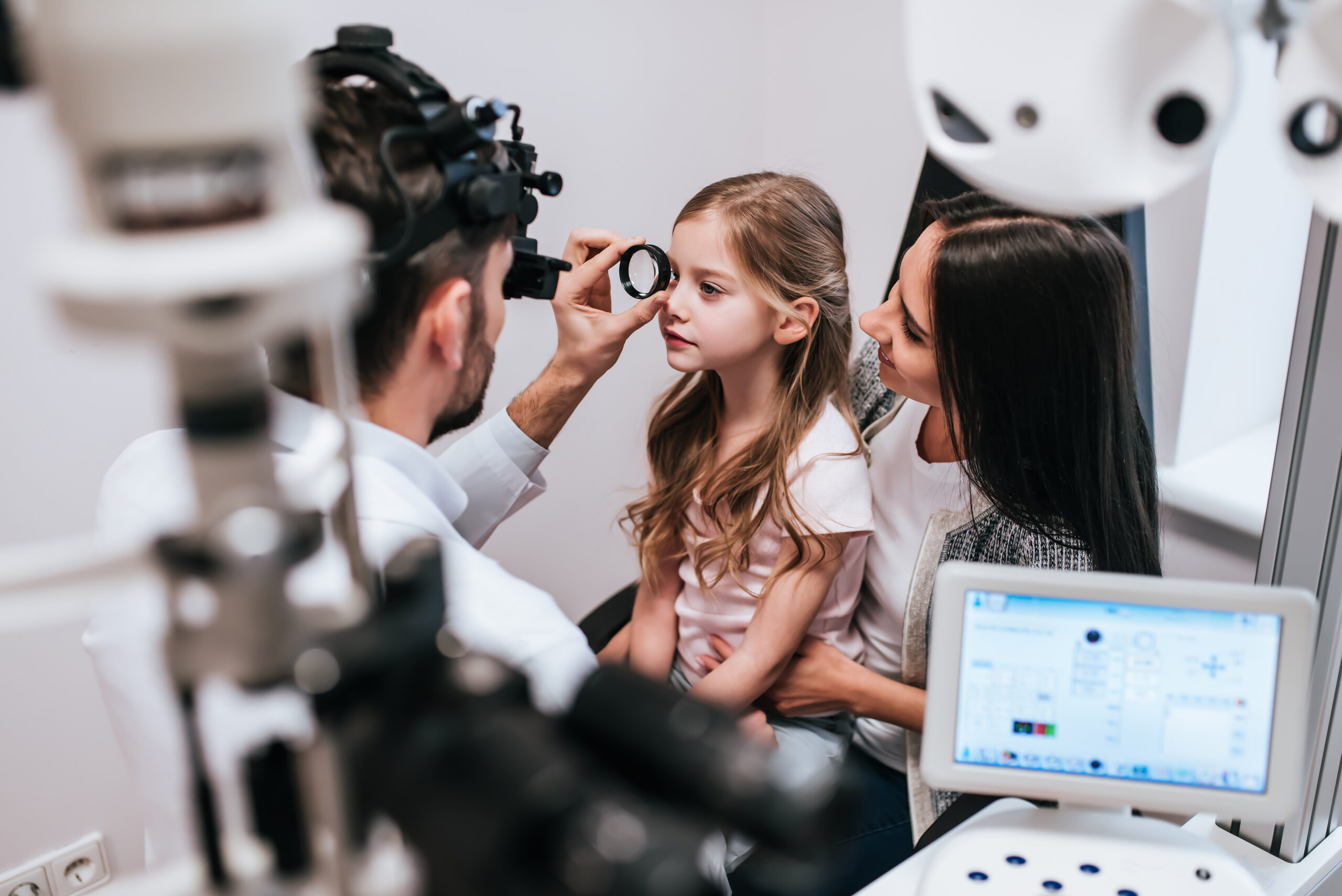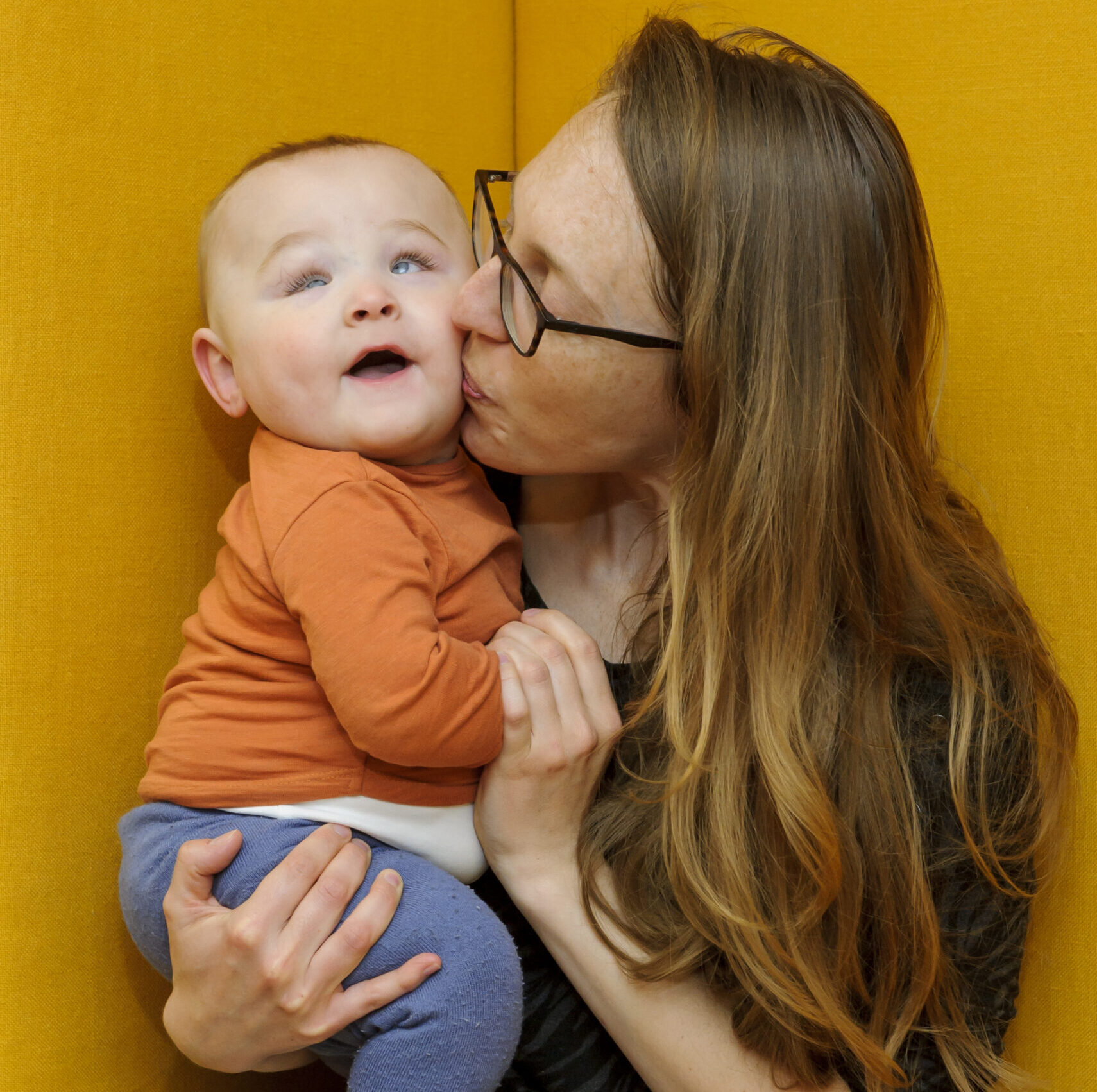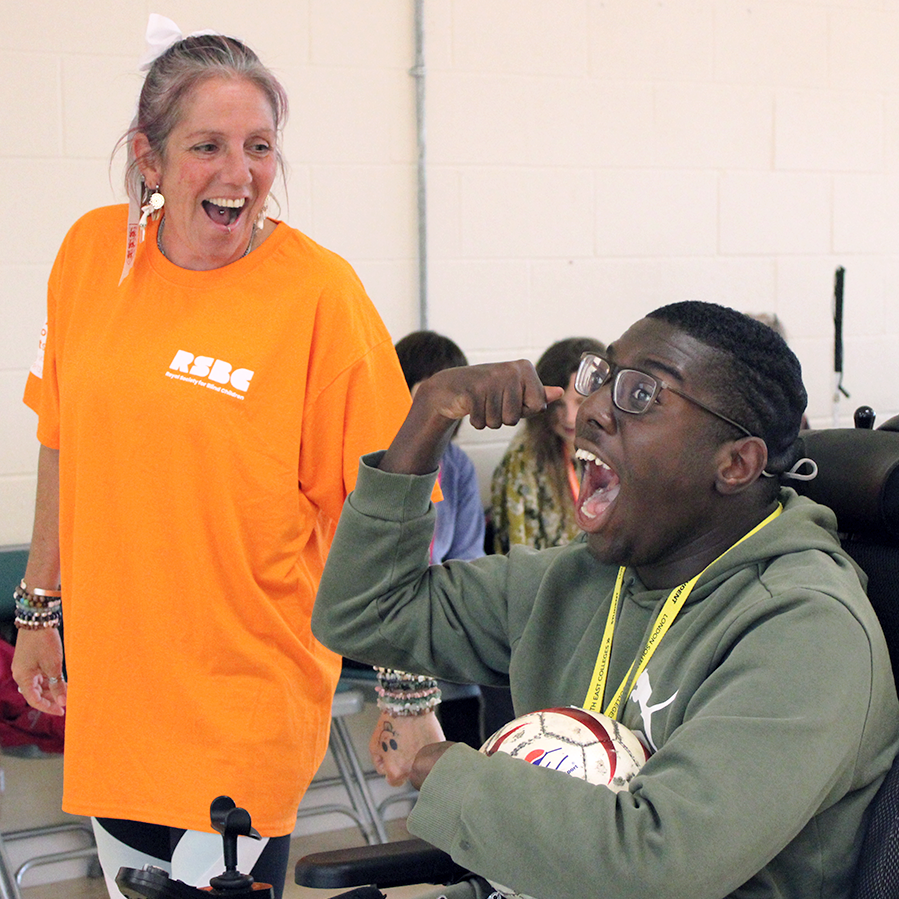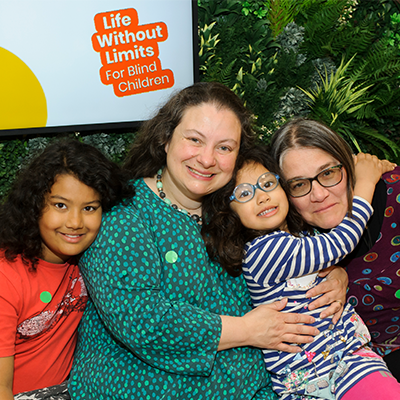Marking Blind Awareness Month: Making play areas more accessible
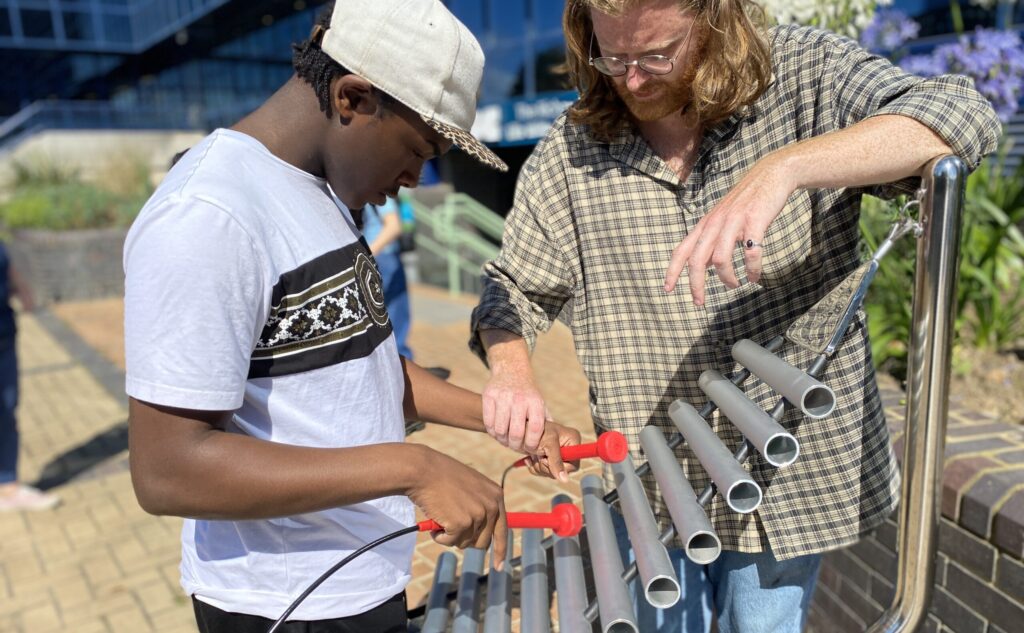
New research into how the play industry can be more inclusive for people with vision impairment has been published, as charities urge businesses to recognise the importance of the ‘purple pound’ and be more inclusive.
Accessibility and safety as priorities
To mark Blind Awareness Month in October and World Sight Day on 10th October, RSBC worked with Percussion Play, the leading designer and manufacturer of outdoor musical instruments, and The Amber Trust, which provides musical opportunities for vision impaired children and children with complex needs, to understand how music-making outside can be made more accessible for young people who are blind, have low vision, or are partially sighted. This research was carried out with the aim of making play areas around the world more accessible, as well as safer.
How RSBC was involved in the research
The research entailed Percussion Play holding two events at the RSBC’s Life Without Limits Centre in London, with group and individual-focused musical workshops and instrument demonstrations for blind and visually impaired children and adolescents in the UK. Percussion Play also invited RSBC to its headquarters in Hampshire. The sessions were designed to garner feedback on the design of the instruments with the aim of making them more accessible and user-friendly for blind, low vision and partially sighted users. Instruments included Percussion Play’s uniquely designed drums, xylophones, bells and chimes.
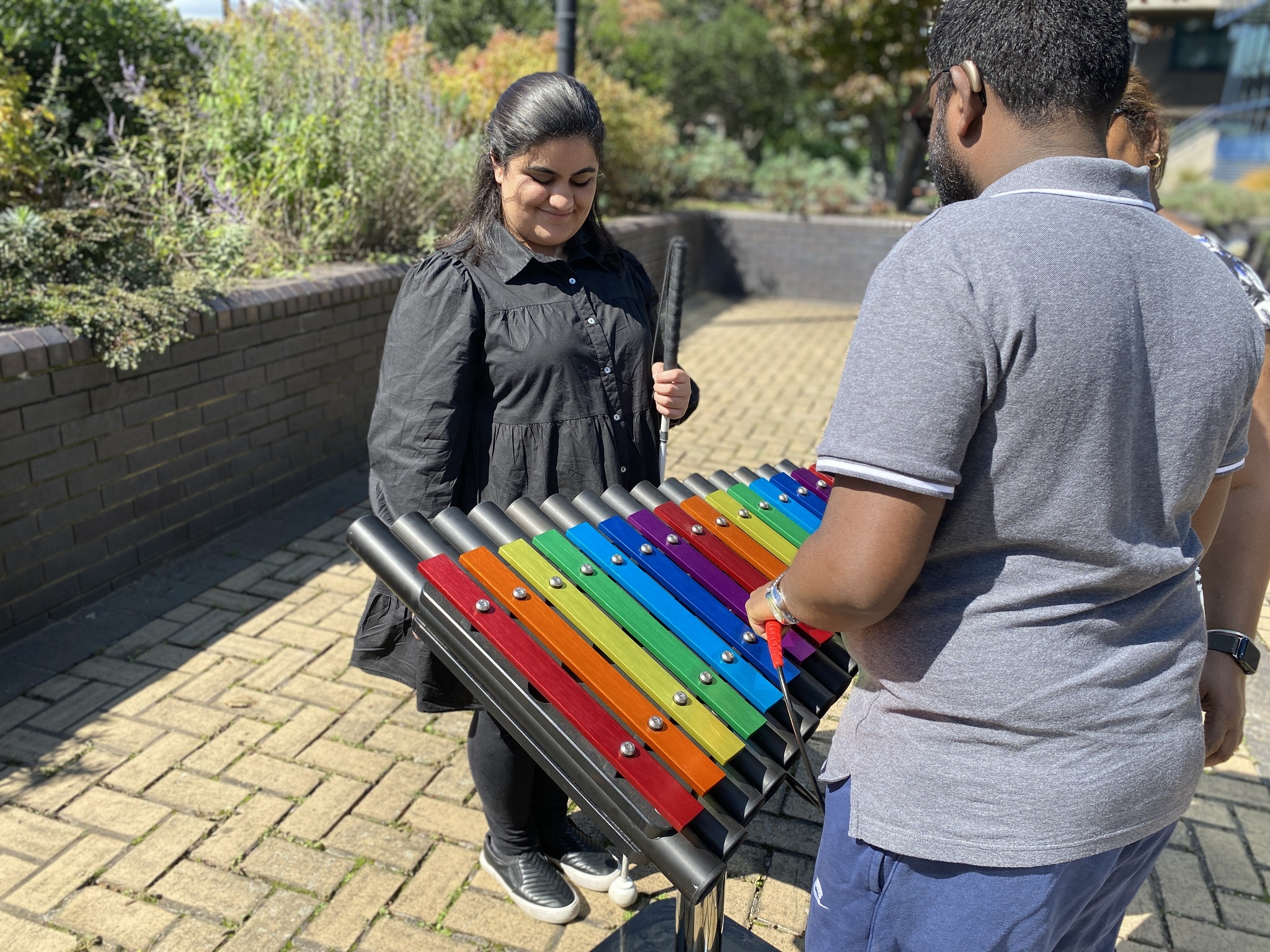
\
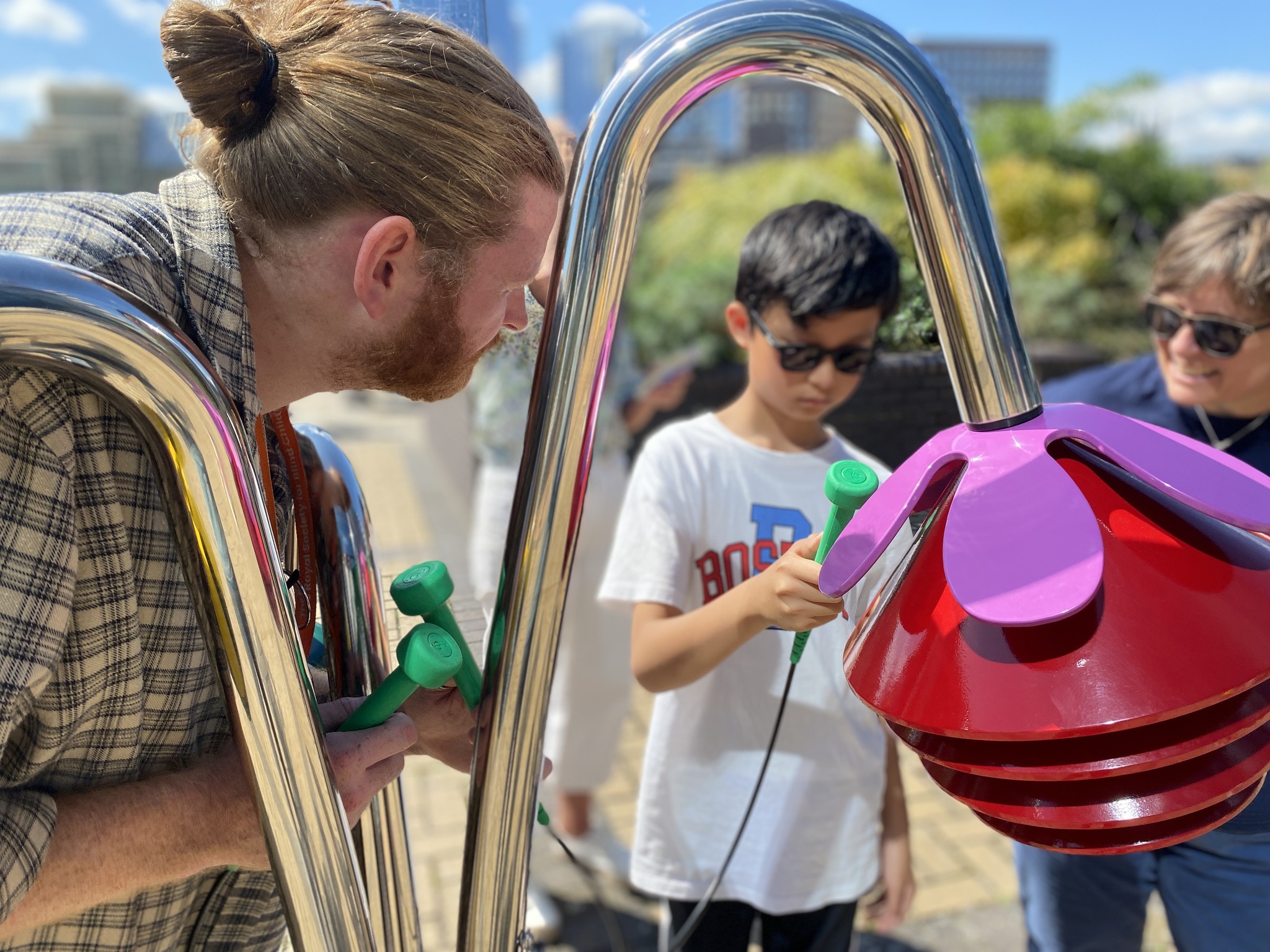
White Paper – ‘The Sounds of Progress’
This research has fed into a White Paper, The Sounds of Progress which includes verbal feedback and maps out some provisional ways in which music might be mobilised to create more genuinely inclusive play environments.
Findings included:
- The design of the instruments is important – from where the bell or chime is placed in relation to the stand can make a significant difference to the user’s safety.
- The size of the beaters for some instruments should be considered.
- Tactile and interesting textures could be incorporated more into the design of instruments to support inclusive play.
- The role of colour, contrast and reflectivity or ‘shiny’ surfaces should be recognised in designing instruments.
Conclusions of the research outlines that “moving forward it is essential to consider the ways in which to ensure that both blind and partially sighted individuals’ needs and desires are met in any new design, design adjustments or adaptations—employing colour, texture, haptic communication and other creative means in order to create genuinely inclusive and equitable musical environments and better equip and empower blind and visually impaired musicians—child, adolescent, and adult—to experience and benefit from the profound, unique power and impact of outdoor musical play”.
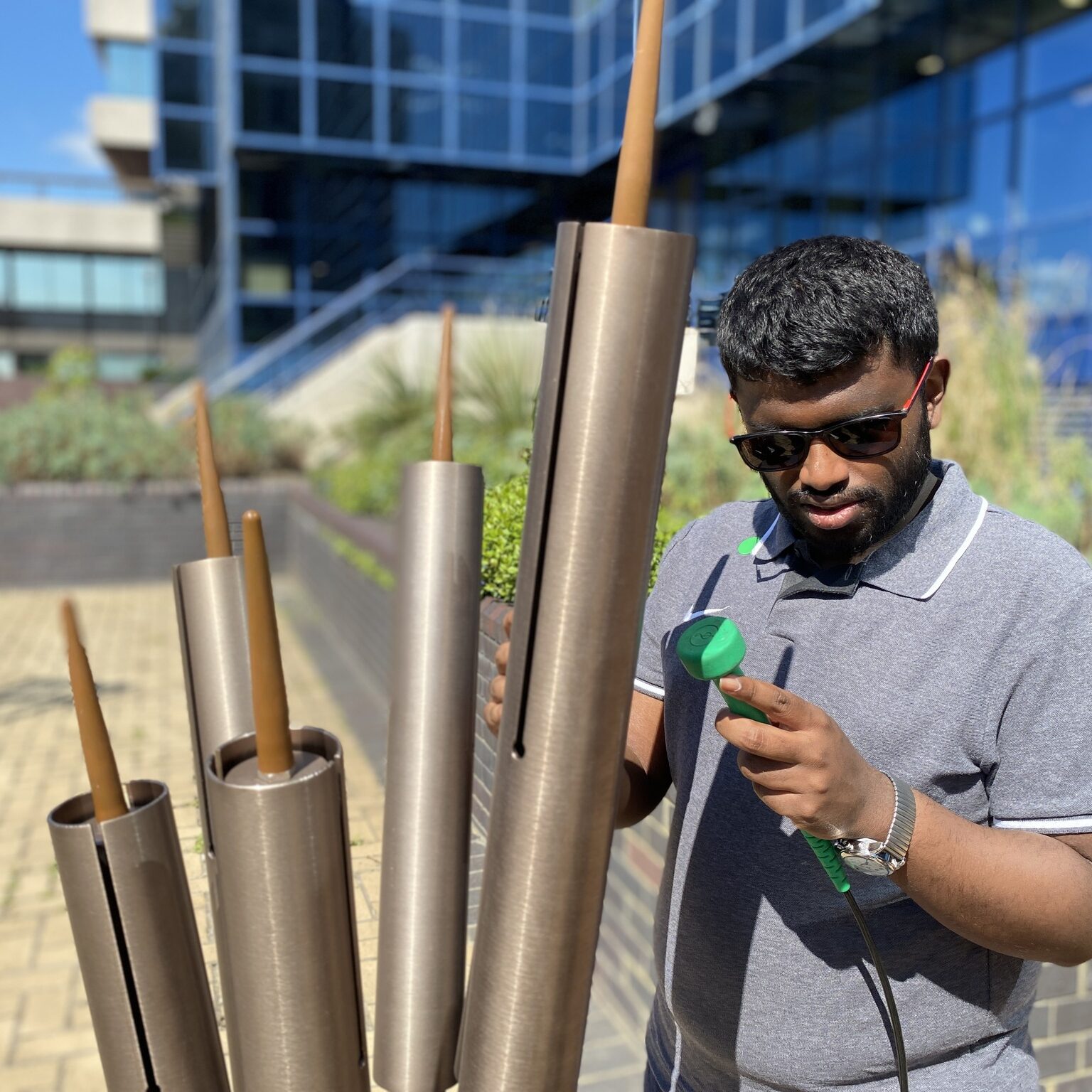
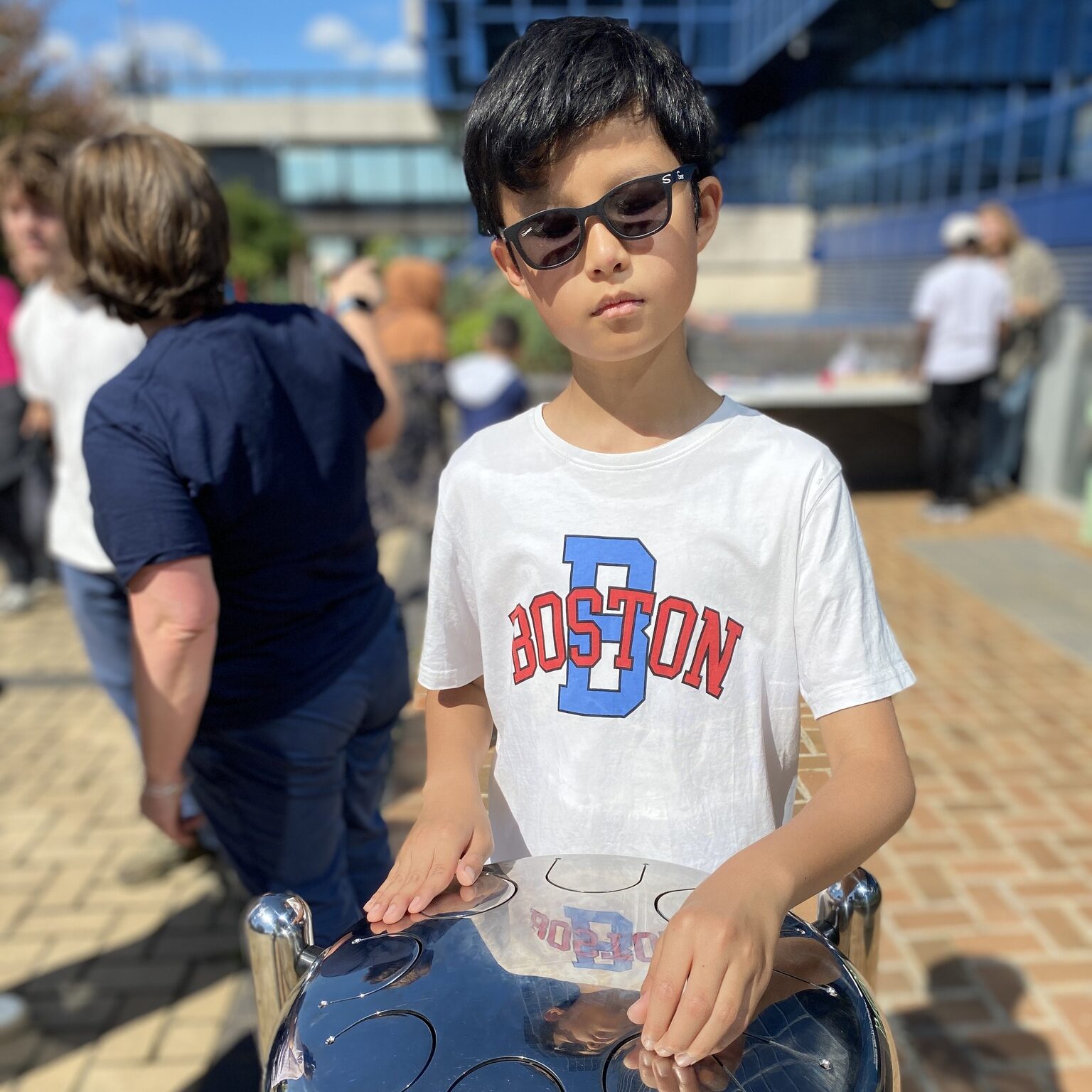
In a foreword for the White Paper, Julie Davis, CEO, Royal Society for Blind Children welcomes the findings saying and urges businesses to understand the economic benefits of being more inclusive. Julie said, “Not all businesses are like Percussion Play and consider the needs of disabled consumers when designing and developing products to bring to the market. However, with the ‘purple pound’ being worth £274 billion a year to the UK economy, we’d really encourage businesses to take an inclusive approach to the blind and partially sighted people that are their potential consumers and ensure their accessibility to music. Working with Percussion Play demonstrates to us that there are businesses out there that wholeheartedly embrace the principles of inclusivity and accessibility, so that every child can enjoy outdoor musical instruments.”
The Amber Trust’s CEO, Sophie Amstell said, “Early childhood musical play is paramount, acting as the foundation for what may become a lifelong engagement with music. Percussion Play has been exemplary in their commitment to creating outdoor instruments that are fully inclusive for all children. The steps they have taken to achieve this goal should be common practice, not the exception. We welcome the Sounds of Progress paper and hope it will shed light on the value of music for blind and partially sighted children, the importance of working in partnership as organisations, as well as with the young people such projects aim to support.”
Jody Ashfield, co-founder and CEO of Percussion Play, said, “we are proud to have worked with the RSBC and The Amber Trust over the past year to help make our instruments more accessible. Their expertise and knowledge have fed into our research and our White Paper, The Sounds of Progress. This paper illustrates our commitment to making musical expression accessible to everyone, everywhere and will inform how Percussion Play designs new instruments in the future. We also hope it will provide the wider play industry with the tools to make play areas around the world as accessible and inclusive as possible.”
You can find out more about this project on Percussion Play’s website and listen to the associated podcast here.
